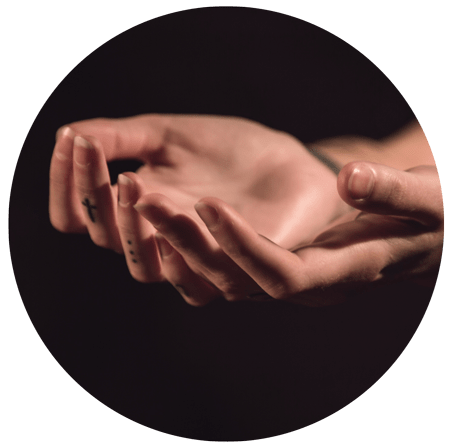Before you read watch: “What Bob learned about forgiveness at Gulf Breeze Recovery”
Three practical tips on how to reconcile Forgiveness with setting Boundaries
Our world seems to be full of inconsistencies, problems, and abuses of power. Sometimes these situations are annoying at best. Your favorite restaurant screws up your order when you’ve been looking forward to that meal all week. You are late for work because your alarm didn’t go off and you’re mad at yourself for forgetting to set it. You feel pressured to invite a family member who has abused you to your child’s birthday party simply because they are family. Okay, so maybe not all of these situations apply directly to you, but we have all been presented with situations that give us an opportunity to forgive and let go of our negative feelings toward a person. There is an age-old question that I have heard time and again: how do I forgive someone when they have done something so wrong to me?
It may be helpful first to look at the underlying assumptions and definitions. First, what is forgiveness?
To some people, forgiveness means to completely let go of anger and absolve any negative consequences.
For example, as mentioned before, feeling pressure to invite a family member to a party who has abused you. My friend experienced this dilemma a few years ago. Her daughter was turning two and she was being pressured by family members to invite her abusive grandfather to the party.
My friend went from refusing to ask her grandfather to protect herself and her daughter, to changing her mind because her immediate family thought she should “forgive” him. In this case, their definition of forgiveness meant completely forgetting his behavior and allowing him fully into their lives; therefore, not allowing any negative consequences to take place.
This approach may be unwise and unsafe.
There are others who believe that forgiveness is best given from the heart but with intensely negative consequences imposed on the offender. While taking a Family Violence class, I once read about a couple that would completely ignore their young daughter for an entire day when she did something wrong. Even in the daughter’s attempts to apologize and make it right, they wouldn’t speak or look at her. When the parents were putting their daughter to bed, they would explain that they loved her and that they did it so she would know never to do anything wrong.
As an adult, the daughter attended counseling to address mental confusion because she didn’t feel that her parents loved her. This approach also seems to miss the mark regarding what forgiveness encompasses since the boundaries did not match the offense.
The parents’ sense of justice was overpowering their expression of love for her.
Another way to look at the purpose of forgiveness is to benefit your own well being. So, balancing forgiveness and boundaries becomes necessary.
What could have been a more appropriate response in these two cases?
Here are some tips:
Let go of anger and desire to harm the person in the way that they may have harmed you. As you may have guessed, your feelings of anger hurt you the most. In cases where the offender is someone you may never see again, that anger and grudge will only hurt you. I once heard that holding a grudge is like taking poison and expecting it to kill the other person. Think of it, why allow that action to take control of your life and feelings? In the case studies above, the little girl was only a child and the parents should have kept that in mind when they were choosing her consequences. She wanted to make things right, but her parent’s thought that bringing about justice for her actions was more important than anything else. Letting go of your anger does not mean that you have to allow the person who has hurt you completely back into your life, but doing so will help you make better decisions about setting boundaries.
Remember that the ultimate goal is peace and serenity. Your peace matters. When at peace you make healthier decisions. Relationships that drain you can’t be sustained and forgetting to love yourself will cause you to break down and do things for people that can be harmful to your well-being. Get to know yourself. Assess your relationships and decide which ones bring you joy and which ones cause unnecessary pain. It’s a process of learning how to let go of relationships that hurt you, so talking to a counselor or trusted friend might be helpful. If you first let go of your anger and then remember that you deserve peace, you will be better able to fulfill the final step.
Set clear boundaries and stick to them. Now that you have let go of your anger and set your sights on giving yourself a boost toward a happier life, the last step is vital to complete the process. In my friend’s case, she simultaneously wanted to forgive her grandfather while protecting herself and her family, which she could have done! It is not necessary to put yourself at risk to provide forgiveness. I have tried to be very clear about setting boundaries with those who have hurt me. I let them know that I am still working on finding peace and will ask them to respect my space. I also let them know that I will allow them into my life in small ways. This approach relieves the stress in these relationships and helps me begin to trust them in small ways. They also feel less inclined to hurt me again as they know what to expect.
At Gulf Breeze Recovery Bob learned about a new level of forgiveness:
“Since I’ve come to gulf breeze recovery I have been able to forgive myself you know I always wanted other people to forgive me because I was doing so many bad things and I recognize that isn’t the way I wanted to be but you know it’s where I was at that time I now realize that it all starts and ends with me forgiving me that’s really all that matters.
I don’t want to say that I’m going to be a selfish person but I have to be somewhat selfish with my recovery and then how much more quality am I going to have to give to others as well you know.
I mean when I am using I’m lucky to get up the next day i’m lucky to go to work. Now I’m grateful that maybe I can try to get a job again and it’ll be meaningful to me. That my life would be meaningful again. I’m excited for that!”
Did you want to read more about Gulf Breeze Recovery’s non 12 step, holistic drug rehab? Check out some of our latest posts:
Researchers Identify Role of Key Brain Signaling Protein in Alcohol Use Disorder
January 29, 2021
College Students Who Returned Home Due to Pandemic Drinking Less
January 29, 2021
Overdose Deaths Soar in the Midst of a Pandemic
January 27, 2021
Alcoholism Today in Seniors and Younger Generations
January 20, 2021
End Chronic Relapse and Start a New Life!
At Gulf Breeze Recovery we don’t want you to have just a great recovery, we want you to have a great life!



 Let go of anger and desire to harm the person in the way that they may have harmed you. As you may have guessed, your feelings of anger hurt you the most. In cases where the offender is someone you may never see again, that anger and grudge will only hurt you. I once heard that holding a grudge is like taking poison and expecting it to kill the other person. Think of it, why allow that action to take control of your life and feelings? In the case studies above, the little girl was only a child and the parents should have kept that in mind when they were choosing her consequences. She wanted to make things right, but her parent’s thought that bringing about justice for her actions was more important than anything else. Letting go of your anger does not mean that you have to allow the person who has hurt you completely back into your life, but doing so will help you make better decisions about setting boundaries.
Let go of anger and desire to harm the person in the way that they may have harmed you. As you may have guessed, your feelings of anger hurt you the most. In cases where the offender is someone you may never see again, that anger and grudge will only hurt you. I once heard that holding a grudge is like taking poison and expecting it to kill the other person. Think of it, why allow that action to take control of your life and feelings? In the case studies above, the little girl was only a child and the parents should have kept that in mind when they were choosing her consequences. She wanted to make things right, but her parent’s thought that bringing about justice for her actions was more important than anything else. Letting go of your anger does not mean that you have to allow the person who has hurt you completely back into your life, but doing so will help you make better decisions about setting boundaries. Remember that the ultimate goal is peace and serenity.
Remember that the ultimate goal is peace and serenity. Set clear boundaries and stick to them.
Set clear boundaries and stick to them.




